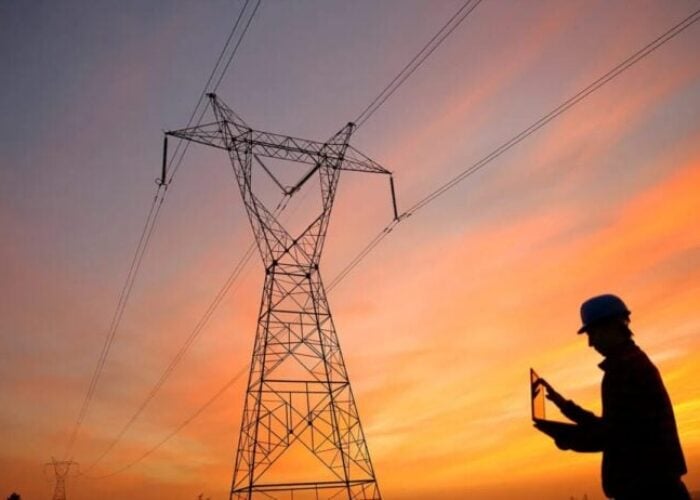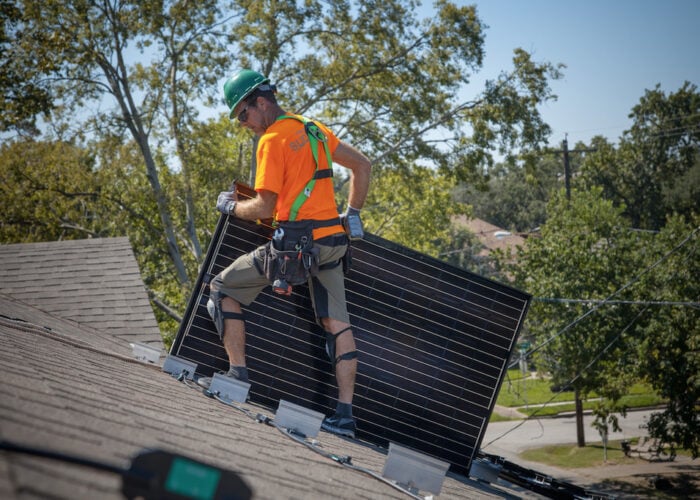During a scheduled visit to a SolarCity factory under construction in South Buffalo, New York, US Senator Charles E. Schumer (D-NY) announced his campaign to push for new legislation focused on extending and amending the current federal solar investment tax credit (ITC) in order to support jobs and development in the PV market.
Specifically, Schumer noted that he is focused on addressing eligibility rules in the current ITC that prohibit businesses from taking advantage of the tax credit until the panels that they install are “placed in service”. Schumer said that these ITC guidelines spur uncertainty within the market, as potential customers and developers are not able to reap the rewards of the tax credit until the project is completed.
Unlock unlimited access for 12 whole months of distinctive global analysis
Photovoltaics International is now included.
- Regular insight and analysis of the industry’s biggest developments
- In-depth interviews with the industry’s leading figures
- Unlimited digital access to the PV Tech Power journal catalogue
- Unlimited digital access to the Photovoltaics International journal catalogue
- Access to more than 1,000 technical papers
- Discounts on Solar Media’s portfolio of events, in-person and virtual
Schumer also stated that he would fight for extending the solar ITC, as it is currently slated to drop from a 30% credit to a 10% credit from 2017. Residential installs will fall from 30 to zero percent.
Schumer noted: “We can power up thousands of jobs in Western New York by extending and modifying the solar investment tax credit. The 30% solar investment tax credit has been nothing short of a bright success, which is why we need to extend the full credit past 2016.
“We should also modify the credit so more businesses can utilise this incentive, to get even more projects underway and create more good-paying local jobs at companies like SolarCity. SolarCity has the potential to put Buffalo on the map as the largest solar panel factory in the world – and allowing its future customers to reap the full benefits of this credit when they break ground on a solar project will go a long way toward ensuring this company's future.”
At SolarCity RiverBend site in Buffalo, Sen. Schumer supports federal solar tax credit and drone safety legislation. pic.twitter.com/Rr4gByeKkT
— Stephen T Watson (@buffaloscribe) August 19, 2015
Comparing his new legislation to the current tax credit offered to wind-generated energy, Schumer harped on changes that would allow homeowners and businesses to take advantage of the ITC in a much shorter timeframe.
While businesses investing in solar panels can currently use this tax benefit upon the completion of a project, Schumer acknowledged that this current stance would prove to be an unnecessary roadblock for certain groups looking to benefit from lower construction and energy costs.
If this new legislation is utilised in the near future, making the ITC available in the first year of construction would instill some added confidence and security for companies looking to make long-term investments in solar projects.
Scott Hennessey, director of federal policy, and regulatory counsel for SolarCity, added: “We’re proud to welcome Senator Schumer, a great champion of the solar industry, to our Buffalo facility. We’re glad to have such a great leader to work with us to create jobs and make energy costs more affordable for consumers in New York and the rest of the country.
“This change to the Solar Tax Credit will enable more businesses and residents across the country to invest in solar, putting people to work, right here in Western New York.”
The current ITC has proven to be an integral factor in the growth of solar across the US – lowering the average cost of solar by 73% since it was first implemented in 2006.
The SolarCity factory that Schumer visited – located at Roverbend in Buffalo is expected to be completed in the third quarter of 2016 and will be fully operational by 2017. The factory is expected to generate around 3,000 jobs, including 1,460 jobs at the facility itself and an additional 1,440 supply-chain jobs.







